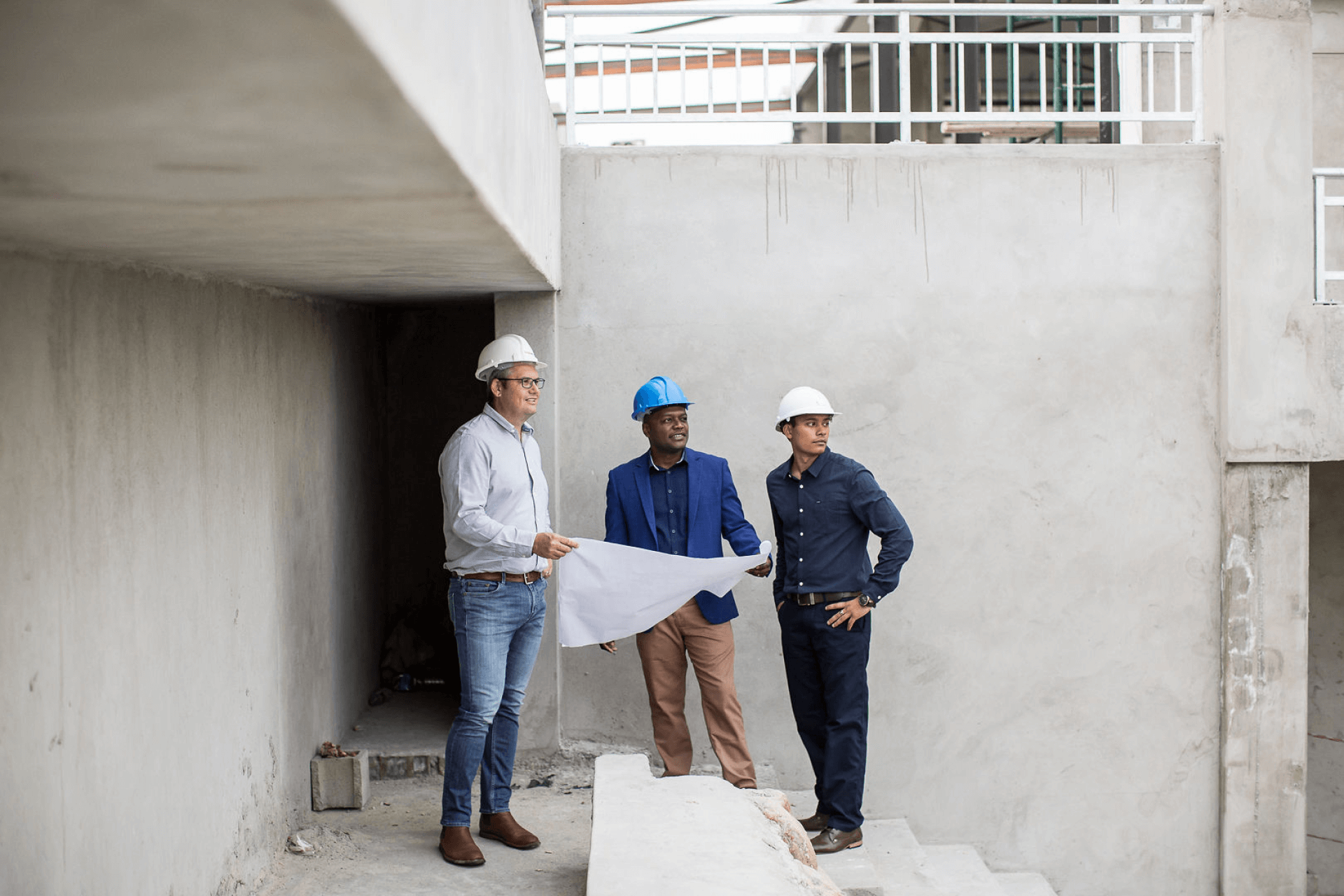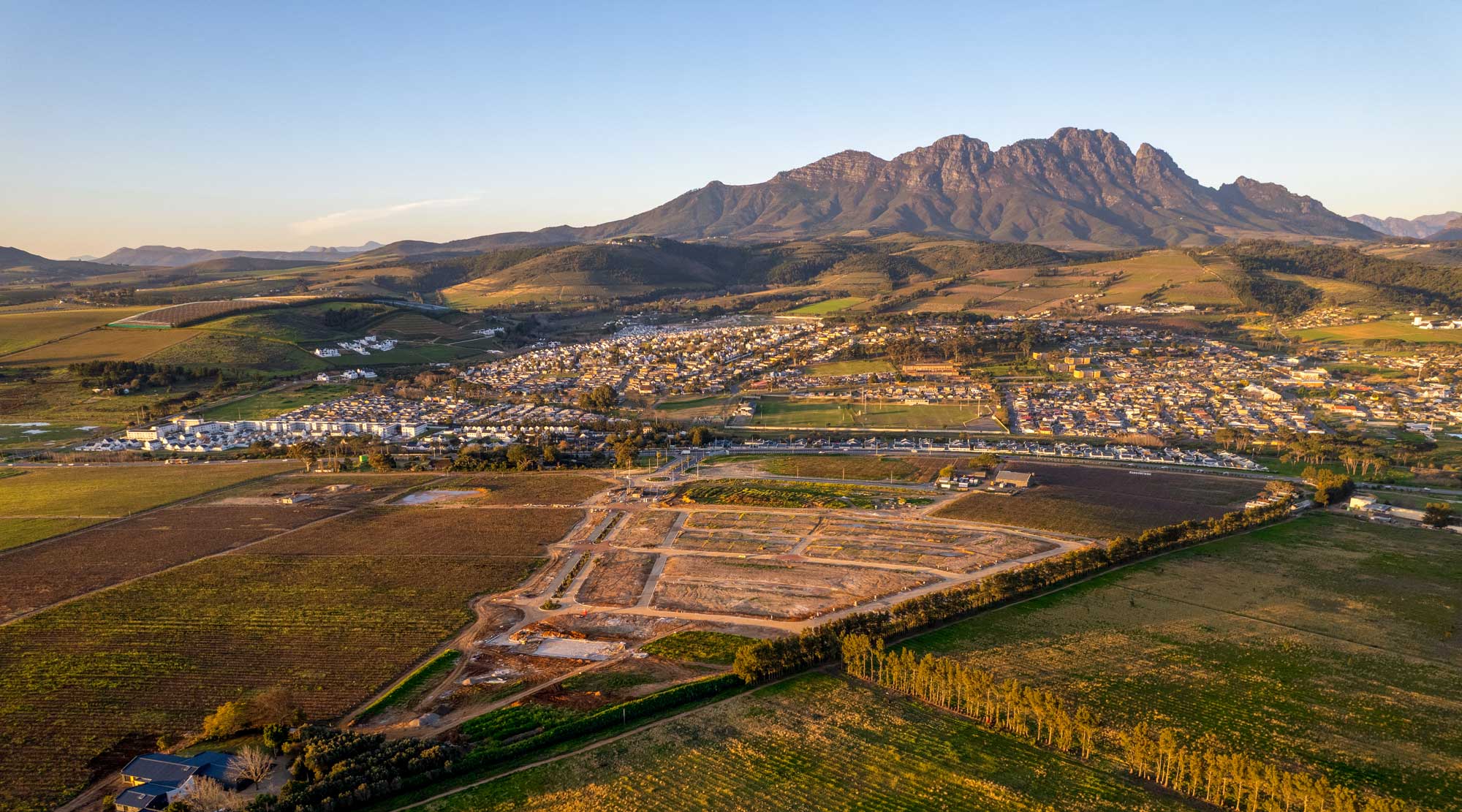SIMILAN PROPERTIES: Similan Embraces Sustainability as Key to Success
Building exciting, connected, and sustainable communities for South Africa’s budding homeowners, Similan brings a fresh approach centred around continuous improvement. Founder Harold Spies tells Enterprise Africa that every new venture undertaken by the company must outshine previous ones, fostering a culture of growth and excellence as they expand their reach nationwide.
The team at Similan is busy creating meaning in South Africa’s property sector, working to the tune of accomplishment as it builds attractive and sustainable homes for a growing population, exactly where they are needed. In the gorgeous Western Cape, where rolling hills and valleys full of indigenous flora, fynbos and sun ripened grapes that make the world’s best wine, Similan is creating a lasting legacy, one that will impact the lives of families for generations.
Founded by Harold Spies in 2010, Similan is a unique property development business that provides a turnkey offering; all the way from acquiring land and zoning correctly through building and selling homes, and managing rental units where required.
The focus for the company is all about quality and improvement. The processes that it employs and the products it delivers are some of the best around, and Similan has been recognised for this excellence, hitting the high notes with various industry awards.
“We are like conductors in the orchestra,” begins Spies. “We have to make sure everyone plays the right note at the right time to make sure beautiful music is made.”
“If we were a mathematical equation, I would say that Similan + sustainability + track record = truly successful projects,” he adds. Successful projects encompass a whole host of things: Value for money, well-built, cost-effective management, lesser impact on the environment, liveable and inviting, community-focused, well-maintained, appreciating values, and more.
Over the past 14 years, Similan has completed several exciting developments that have delivered on all promises. Mainly focused on the Western Cape, the company’s portfolio boasts the CentralBlue and Newinbosch developments as well as the Selcourt Estate in Gauteng, the Summer Rain Private Estate and Karino Lifestyle Estate in Mpumalanga, the Fourleaf Estate in the Eastern Cape, and The Woods development in KZN.
Similan’s core business comes in the form of three main legs. Firstly, standard property development in its own right. Secondly, consultancy work where property development is handled on behalf of other clients including development management work, project management, construction project management, and property valuations. Finally, Similan offers estate agency services, looking after its own sales and rentals, where it has a 1200-unit portfolio.
“For us, development is the sum of a million small things. It’s not just about size or location or price. In between those three headlines there are another hundred data points that we consider when we develop,” says Spies.

SOUGHT AFTER LOCATIONS
Currently, Similan is busy with two major projects – Newinbosch in Stellenbosch and the Urbika Urban Lifestyle Estate in Gauteng.
Newinbosch has been welcomed by all because of its clever positioning in a challenging marketplace.
“Stellenbosch, like other places in the Western Cape is a town that works but it has a number of problems,” admits Spies. “It is very expensive to live from a property perspective. The prices are exceptionally high and that is prohibiting if you want to move from other towns. Our aim with Newinbosch is to create a middle-class neighbourhood which we don’t think exists in Stellenbosch based on the price point. There are low-income solutions that are not too expensive, but those communities are often protected and difficult to access. That leaves a gaping hole for young professionals and young families who sell an average house in the rest of South Africa and want to move to Stellenbosch. Newinbosch aims to be a new neighbourhood and new in a number of ways including what we develop, how we approach development, our sustainability targets, how we are certified, how we use energy, and how we manage that process.”
Onsite, a large solar PV project is being developed, alongside a backup generator system to protect residents against loadshedding but in a sustainable manner.
“The market has responded nicely to that,” suggests Spies. “We launched 200 of 1320 units in May and we have sold around 180 already, which is brilliant for current market conditions. We launched the first apartment building recently and we have almost sold out on the first phase which we are very happy about.”
Similan understands the Stellenbosch market and is confident about Newinbosch going forward as various phases are conducted over the next four years, creating a R2.4 billion neighbourhood. The vibe here is connected and convenient, drumming the beat of urban convenience and rural tranquillity.
“It is a sought-after location. It has always had fantastic capital growth on properties,” declares Spies. “It’s beautiful, it’s wine country, it’s between mountains and rivers, and the quality of life is fantastic. That has helped buffer us against some of the negatives we have experienced. Although it has been a much tougher environment to operate in, our products and the positioning of them from a price and locality perspective seems to find favour with potential buyers,” he says of the challenging conditions in a post-Covid environment, laden with clam-markets, adding that any reduction in sales have been minor at worst.
De Kleinje Wingerd, just outside Cape Town, is another exciting Similan development and is already sold out. Set in A modern project in a prime area around Kuils River, De Kleinje Wingerd sits alongside the impressive Zevenwacht Estate. “We have completed the first apartment buildings and people are occupying, and the balance will be completed by the end of January. That is a 171-unit development.”
Also in the Western Cape, Similan is hoping to take advantage of the Mediterranean-style climate along the famed Garden Route where its is soon to begin with a new project in Mossel Bay. “It’s an 800-unit development in a great region, the weather and community are fantastic, and it offers so much for people looking to move from the northern parts of the country,” says Spies.
By the end of February 2024, Similan expects to complete the final phase of the Urbika development in Ekurhuleni. This will be the last of current projects outside of the Western Cape and will see 1099 homes and apartments completed with high-quality finishing and technology to keep the development relevant in the future. East of Johannesburg CBD, there is not another development like Urbika.
NO COMPARISON
From the beginning, Spies was clear that the company should always advance on its previous projects, consistently finding better ways to do everything and, importantly, enhancing its environmental credentials to keep its position as a concertmaster in a crowded and busy industry.
“We don’t position ourselves against other developers. We don’t do quarterly or yearly comparisons against others,” he says. “The origin of what we do comes from two key questions. One is where there is a piece of land that needs to be developed and we start a journey. Second is where we have a specific need such as a certain type of development in an area that comes from within or from our clients. From there, another journey starts with finding the right land.”
Not content with simply putting up houses to increase volume or taking the cookie cutter approach, Similan insists on getting the most from the site, understanding context, and being sustainable.
“It’s all about finding the best possible response for that piece of land,” smiles Spies.
The best possible response for Similan comes from potential residents, government, and the environment. Without positives from all three, it cannot achieve its goals. To ensure that it is delivering more than the bassline, Similan benchmarks itself against strict standards set out by the Green Building Council South Africa (GBCSA).
“We always ask a big set of questions, and the answers to those questions should now be different to what was answered on a previous development. Sustainability is a key fundamental for us and our aim is to lessen the impact from a building perspective but also with the spaces between buildings. We ask other questions around ecology, water use, energy use etc. Most of those are derived from the certifications that we use on our developments, run by the GBCSA,” explains Spies.
At Newinbosch, Similan is hoping for four separate certifications from the GBCSA to bolster its sustainability credentials.
The Green Star 5 Star rating is a top certification awarded by the GBCSA. It recognises buildings or developments that demonstrate South African excellence in sustainable design, construction and operation. At Newinbosch, The Grappa Shed events venue, will pursue this certification with its specific focus on water efficiency, indoor quality, sustainable materials and innovative design. Net Zero Certification is awarded to projects that go beyond the partial reductions recognised in the current GBCSA tools. Newinbosch will improve the ecological value of the site, enhancing biodiversity, habitat and quality of green space. EDGE (Excellence in Design for Greater Efficiencies) offers a measurable way to cut back on the resource intensity of buildings. The Sustainable Precincts tool plays a pivotal role in evaluating large-scale developments, compelling developers to prioritise thoughtful design, community integration, and environmental well-being. Newinbosch encapsulates this through its live-work-play ethos designed to improve quality of life.
“A big part of our ethos is to build in a more sustainable manner and that is a cliché that is thrown around worldwide,” details Spies. “We don’t subscribe to greenwashing; we have a heartfelt and honest need to do better than what we have done previously. There is a big ask of all industries to have a lesser impact on the environment. Many responses differ; some do it for brownie points, some do it so they can put a certificate on their wall, and others do it because they subscribe to what needs to be done and lessen the impact. For us, it is about doing what we do but better every time we deploy our skillset on a property.”
Building better means landscaping better, using less water, using less energy, and making sure that ergonomically everything is thought about in detail so that the best possible solutions are achieved. This success is then passed to residents who can qualify for green bonds, and Similan’s development finance can be cheaper.

COLLABORATORS
Developing fantastic property in South Africa, like creating beautiful orchestral music, is not something that can be done alone. Similan works alongside some of the industry’s experts to bring projects to life, and Spies has spent a long time putting together the best ensemble.
“The value chain is significant,” he says. “The number of people that sit around a table is substantial. We do rely on a whole range of different partners.”
Everyone from architect to quantity surveyor to interior designer to botanist plays a key role in bringing the vision to life, and collaborators tend to build lasting relationships.
“We are quite a close-knit team and we journey with our partners through different projects. From a Similan perspective, our focus is on doing what we do really well. We want an incredible product at a reasonable price for our buyers. Within that, the green story is one that is daily integrated into everything we do. Our approach allows us to ensure professionalism and means we get truly exceptional service,” confirms Spies.
Similan has become the expert at unifying all performers, setting the tempo, and controlling the interpretation of concepts. Like a true conductor, the company delivers the message from the idea composers, and achieves desired performance.
“We deliver the development, which is a confluence of the marketing story, the money story, the building story, and the management of properties,” reiterates Spies.
Through this agenda, the company continues to shape the future for families in South Africa. “We have seen real cost pressures from all directions but there is a desirability around where our developments are and that keeps us confident about the future,” he concludes.
Similan has always been about building communities and not houses, pairing two unlikely housemates – affordability and quality – so that a new generation can become proud homeowners. So far, it’s mission accomplished as the company helps to tune the industry for a better way forward.

